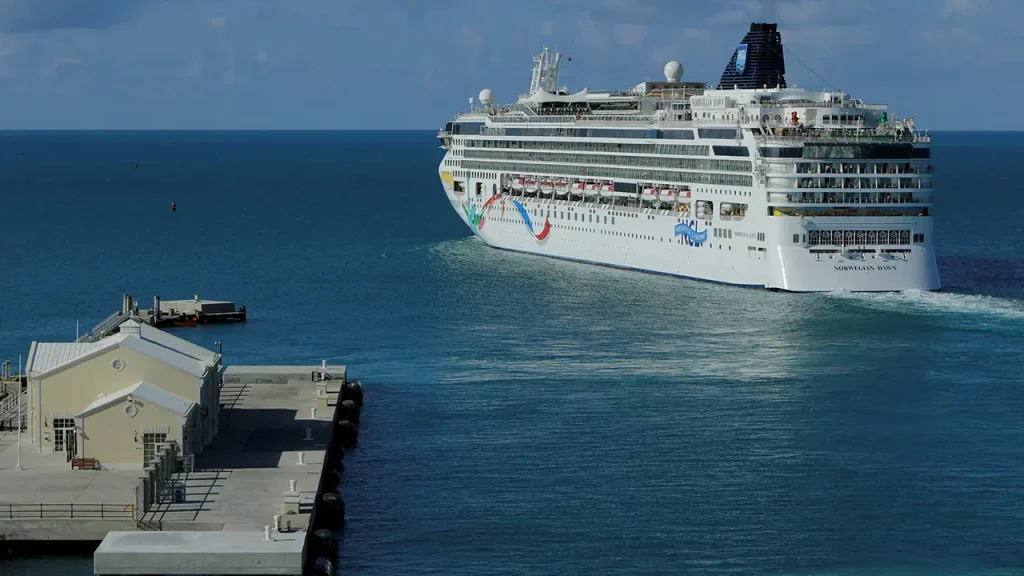Six American cruise passengers and two Australians found themselves stranded on the African island of São Tomé during a vacation getaway. The group, which included a pregnant woman, had been left behind by Norwegian Cruise Line without their belongings, despite assistance from the Coast Guard. Efforts to board the ship were unsuccessful, and the U.S. Embassy in Angola got involved to help arrange for the group to fly to the Gambia in West Africa. However, the ship was unable to dock due to low tides, leaving the passengers in a difficult situation.
The South Carolina couple at the center of the ordeal, Jill and Jay Campbell, explained that they had been on an 21-day cruise and were touring the island when they encountered an issue with their tour guide that caused them to miss the all-aboard time. The cruise ship was still anchored on the island when they returned, and the Coast Guard helped transport them to the ship, but the captain refused to let them board. Among the group were elderly passengers, including a man with a heart condition who had been without his medication for five days, a paraplegic, and a pregnant woman. The pregnant woman, in particular, added urgency to the situation.
Efforts to resolve the situation by flying the group to the Gambia were thwarted when the ship was unable to dock there, leading to a plan to head to a port in Senegal where the cruise was scheduled to dock. The logistics of transporting the passengers, including a quadriplegic woman, involved arranging van transportation for eight people, crossing a ferry into Senegal, and then embarking on a four-hour drive. The unexpected turn of events has caused a great deal of stress and uncertainty for the stranded passengers, who had not anticipated the challenges they would face during what was supposed to be a relaxing vacation.
Norwegian Cruise Line responded to the accusations before the latest docking issue in the Gambia, emphasizing that it was the responsibility of passengers to return to the ship at the published time. The cruise line stated that guests were responsible for any necessary travel costs to rejoin the ship at the next port of call, and that passports were left with local port agents for retrieval upon the guests’ return. The situation was deemed “unfortunate” by the cruise line, which also mentioned that they were working closely with local authorities to determine the requirements and necessary visas for the passengers to potentially rejoin the ship at the next available port.
The passengers, now stranded on São Tomé, are facing challenges related to the separation from their belongings, which include essential items like money, medicine, and vaccination certifications required for immigration. The experience has been described by the Campbells as unlike anything they have encountered before. The group is relying on communication with the cruise line and local authorities to navigate the situation and determine the best course of action for rejoining the cruise, with updates being provided as new information becomes available.
The group of stranded passengers, including the Campbells and other travelers, remains in a state of uncertainty as they await further instructions and attempt to make arrangements for their journey to Senegal. The unexpected turn of events has turned what was supposed to be a relaxing vacation into a challenging and stressful experience. The passengers are relying on the assistance of the U.S. Embassy, local authorities, and the cruise line to help navigate the logistical challenges they are facing as they work towards reuniting with their cruise ship in Senegal.


